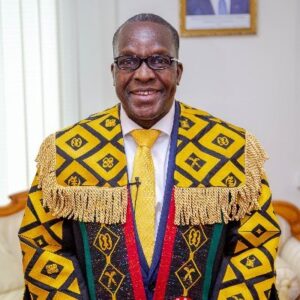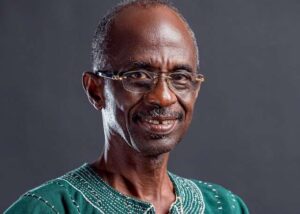Here Are the Winners of the 7 Key Parliamentary Seats So Far

The Electoral Commission (EC) of Ghana has commenced the process of announcing the winners of nine disputed parliamentary constituencies after a re-collation of results mandated by the Accra High Court. These constituencies had previously seen contentious results, and the re-collation exercise aims to resolve the discrepancies and provide a clear final outcome. Below are the declared winners in the constituencies so far:
- Obuasi East Constituency (Ashanti Region)
In the Obuasi East Constituency, Patrick Boakye-Yiadom of the New Patriotic Party (NPP) has successfully retained his seat as Member of Parliament (MP). Boakye-Yiadom garnered 18,558 votes, narrowly defeating his challenger Samuel Aboagye of the National Democratic Congress (NDC), who secured 18,539 votes. An independent candidate, Adjei Owusu Afriyie, garnered 424 votes in the election. The declaration was made by the Returning Officer, Frederick Mensah, in Accra. - Nsawam-Adoagyiri Constituency (Eastern Region)
Frank Annoh-Dompreh, the incumbent MP for Nsawam-Adoagyiri and a candidate from the NPP, has been declared the winner after the re-collation of votes. Annoh-Dompreh, who was seeking re-election, received 29,640 votes, defeating his competitor, Philibert Fummey of the NDC, who received 29,433 votes. The re-collation exercise was carried out at the Greater Accra Regional Electoral Commission office, where the final results were declared. - Tema Central Constituency (Greater Accra Region)
Charles Forson of the NPP has emerged victorious in Tema Central, securing 18,870 votes to win the parliamentary seat. This result comes after a revision of the earlier declaration, where Ebi Bright of the NDC had been declared the winner with 18,815 votes. Forson’s victory margin was tight, and an independent candidate, Fredrick Aniagyei, received 229 votes. This constituency was one of several where results were revisited, and the final count confirmed Forson’s success in retaining the seat for the NPP. - Ahafo Ano North Constituency (Ashanti Region)
Nana Agyemang Prempeh, the NPP candidate for Ahafo Ano North, has retained his parliamentary seat following the re-collation of results. Prempeh secured 20,353 votes, edging out his opponent, Kwasi Adusei of the NDC, who garnered 20,232 votes. The re-collation process confirmed Prempeh’s narrow lead, ensuring that he continues his tenure as the representative for this constituency. - Okaikwei Central Constituency (Greater Accra Region)
In Okaikwei Central, Patrick Yaw Boamah, representing the NPP, has been declared the winner with 21,099 votes. Boamah defeated Abdulai Abu Baba Abubakar Sadiq of the NDC, who received 19,368 votes. Boamah’s re-election was contested, but the re-collation confirmed his victory, ensuring that he remains the MP for Okaikwei Central. This result highlights the competitive nature of the race in this constituency, where Boamah held a clear lead over his opponent. - Ahafo Ano South West Constituency
Elvis Osei Dapaah of the NPP has been declared the winner of the Ahafo Ano South West Constituency. Dapaah secured 16,058 votes, narrowly defeating Abubakar Sadiq, who garnered 15,372 votes. The re-collation affirmed Dapaah’s victory, ensuring that the NPP maintains its hold on this constituency. - Techiman South Constituency (Bono East Region)
Martin Adjei-Mensah Korsah, the incumbent MP for Techiman South and a candidate from the NPP, has emerged victorious in this constituency. Korsah secured 46,663 votes, defeating his closest challenger, Christopher Beyere of the NDC, who received 43,429 votes. Other candidates in the race, Donkor Moses and Boyoung Maris, received 140 and 76 votes, respectively. Korsah’s victory cements his position as the MP for Techiman South, where he had previously represented the constituency.
The re-collation process and subsequent declarations by the EC have brought clarity to the results of several parliamentary races. However, some constituencies remain unresolved, and further re-collation efforts are expected as the EC works to ensure the integrity of the election results. This process highlights the importance of transparency and accuracy in Ghana’s electoral system, as well as the role of the courts in ensuring fair electoral practices. These declarations have significant implications for the political landscape in Ghana, influencing both the government’s composition and the country’s political future.





